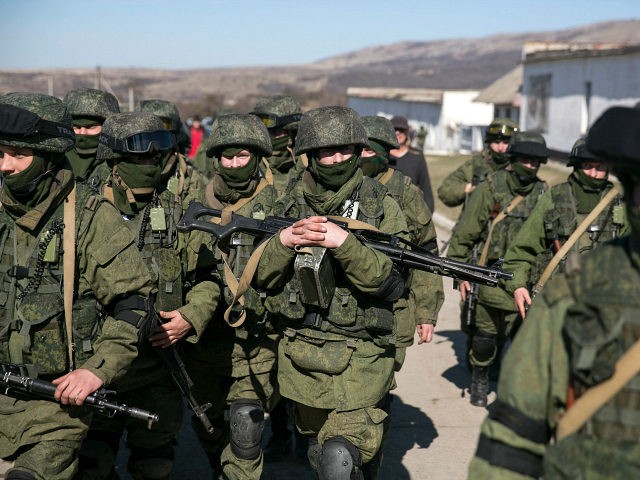According to U.S. commanders – specifically Army Lt. General Steven Townsend, commander of Combined Joint Task Force Operation Inherent Resolve – American and Russian troops “have converged literally within hand-grenade range of each other” in Syria.
The numbers of those troops may be approaching parity as well since NBC News observes the American presence in Syria was roughly a thousand strong in February, but “that number may have been boosted by the arrival of several hundred more in recent weeks to support the battle to route ISIS from Raqqa.” The Russians have somewhere between 1,600 and 4,500 troops in Syria.
NBC quotes Professor Andreas Krieg of the Defense Studies Department at King’s College London warning, “Escalation is bound to happen.”
Krieg noted that surrogates such as the U.S.-allied Kurdish YPG militia are “doing their own operations and then the sponsors are doing air cover and artillery cover,” greatly increasing the risk of dangerous confusion.
On the other hand, NBC correspondents report seeing Russian and Syrian forces, as well as American units, working outside the Kurdish holding of Manbij. Their mutual objective of keeping Turkey from moving its forces into Manbij appears to have been achieved. The YPG spoke of reaching an “agreement” with Russia in northeastern Syria.
Several observers quoted by NBC News pointed out Russia’s interest in reinforcing its political narrative of joining forces to eliminate the Islamic State, instead of Western powers supporting efforts to topple the regime of Syrian dictator Bashar Assad. This would not only consolidate Russia’s interests in Syria but greatly enhance its international prestige.
Evidently, Russia values those goals even more highly than its recently repaired relationship with Turkey, which views the Kurds as the greatest threat in Syria and is not fond of the Assad regime. A similar strategic predicament exists between NATO member Turkey and the United States, which has long been allied with Kurdish forces the Turks regard as terrorists.
Even as U.S. and Russian troops get close enough to play badminton, a Russian general on Tuesday accused the United States of deliberately seeking to “completely destroy critical infrastructure in Syria and complicate post-war reconstruction as much as possible.”
He was in part referring to the strategic Tabqa Dam near Raqqa, as well as some bridges across the Euphrates River allegedly destroyed by U.S. coalition jets. The coalition denied targeting the Tabqa Dam, whose collapse would be catastrophic and said no structural damage to the dam has yet been discovered.
In better news, Russia has reportedly agreed to help the United States and Israel reduce Iran’s influence in Syria and expel pro-Iranian forces from the country. The Jerusalem Post describes this report as coming from a Kuwaiti newspaper that claims to have spoken with anonymous U.S. officials. Those sources said Russia is ready to begin withdrawing some of its forces from stabilized areas of Syria and leaving the Syrian army in charge.

COMMENTS
Please let us know if you're having issues with commenting.